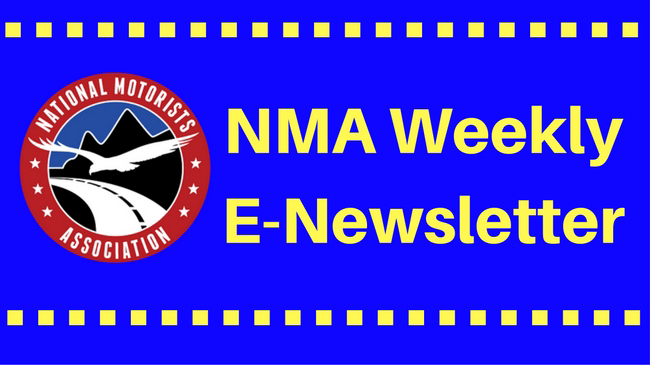Randy LoBasso, policy manager at the Bicycle Coalition of Greater Philadelphia, loves to hate the National Motorists Association. We are often the bogeyman he uses as a counterpoint to his pro-bicyclist, Vision Zero, anti-car rhetoric. For instance: “Let’s understand what the National Motorists Association is: An extremist fringe group that thrives on emotional explanations to reason that humans should be able to drive cars without consequences.”
There is so much to pick apart in that statement but let’s just focus on “thrives on emotional explanations” for a second. A visit to the summary page of our positions on key issues belies that. A sampling:
Speed Limits: The NMA believes that speed limits should be based on sound traffic-engineering principles that consider motorists’ reasonable and prudent travel speeds.
Red-Light Cameras: The NMA opposes the use of red-light cameras and proposes engineering solutions as the real fix for intersections with high accident rates.
Lane Courtesy: The NMA strongly supports the simple but significant concept of slower traffic using the right land and vehicles in the left lane yielding to faster traffic.
DUI/DWI: The NMA supports DUI/DWI regulations based on reasonable standards that differentiate between responsible behavior and reckless, dangerous behavior.
Passion is important to effective advocacy but reason and common sense, which we like to think are on full exhibit in our position statements, are also vital tools for garnering support.
Mr. LoBasso had an opinion piece published in Philly.com’s The Inquirer in late November calling for the revitalization of a major Philadelphia thoroughfare by banning parked cars. His pitch, “If the city eliminated parking on South Street and replaced those empty vehicles with more access for people riding bikes, scooters, skateboards, or whatever, it would give South Street new life and help create a more economically viable corridor.” Restricting vehicle access to public roads is a common theme of the bicyclist lobby.
The online comments to Mr. LoBasso’s op-ed almost universally panned his suggestion:
I have to ask, does the author really believe that bike riders coming to South Street to spend money outnumber the car drivers who come to South Street to spend money?
***
First off it is the RENTS being charged by developers that is causing the vacant stores. Next, while I believe in bicyclists rights, I also believe they should obey traffic signals and stop signs just like cars. As a pedestrian who lives in the South Street corridor, I can’t remember the last time I saw a bicyclist actually STOP at a red light (and wait for green) unless there was cross traffic.
***
If my car is not welcome, neither am I. I shop in Delaware to avoid city and state taxes….
***
LoBasso’s editorial is a window into his backwards Bizarro world. Rather than revitalizing business districts, similar schemes have destroyed small businesses from New York City to California, where business owners are demanding a roll-back of road-diet bike lanes to save their livelihoods. Philadelphia has a short memory: the Chestnut Street Transitway destroyed the thriving businesses on Chestnut Street for 20 years before it was repealed. . . The kicker is that taxpayers are being forced to fund this Vision Zero nonsense.
***
And just how much of a business boon would be during the foul weather days? These bicycle-utopia articles are based in a curious “reality” when it comes to the statistics reported.
***
The internet killed shopping everywhere. How is “no parking” going to mitigate an oversupply and same demand problem?
***
One should study the past and learn from it. They tried that with Walnut Street and it didn’t work. Not saying it might not work….but not likely. Plus, what of the merchants who provide the service, pay the taxes and employ the workers…they deserve a say more than the bikers.
There are indications that a large segment of the public agrees with the NMA’s Streets That Work, Freedom of Mobility initiative that states, “Motorists deserve roads that not only work, but can also be put to work. That means allowing people the freedom to travel to the destination of their choice when they want with the least amount of interference. That is a fundamental principle of the American way of life. It also means keeping roads open for the movement of goods and services that is essential for society as a whole.”
With well over 200 million licensed drivers in the United States, more of the silent majority must mobilize to speak up in community meetings, city council sessions, and legislative committee hearings when discussions whether to roll back car use are held. Anything less will result in limitations to necessary driving freedoms.




